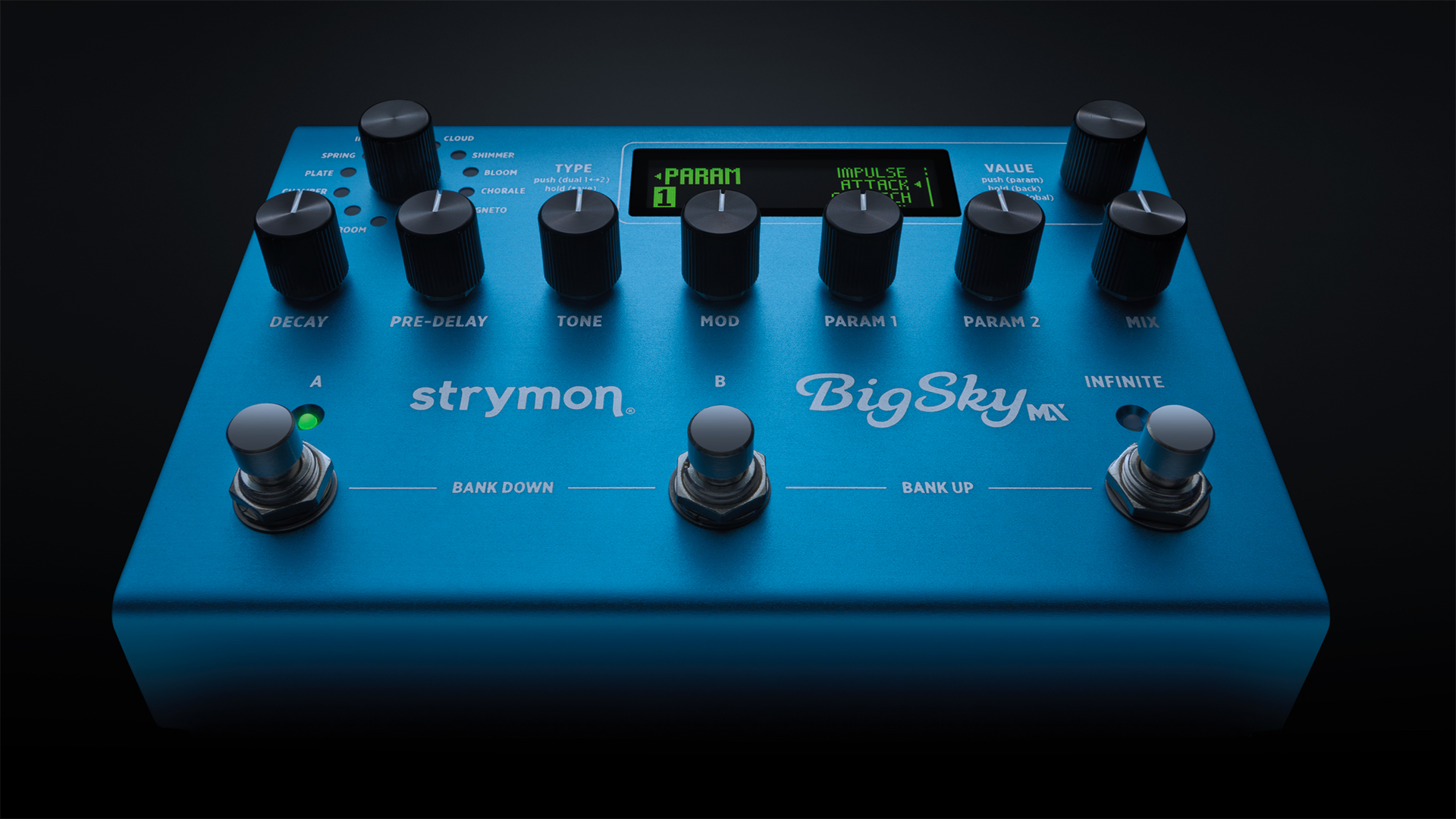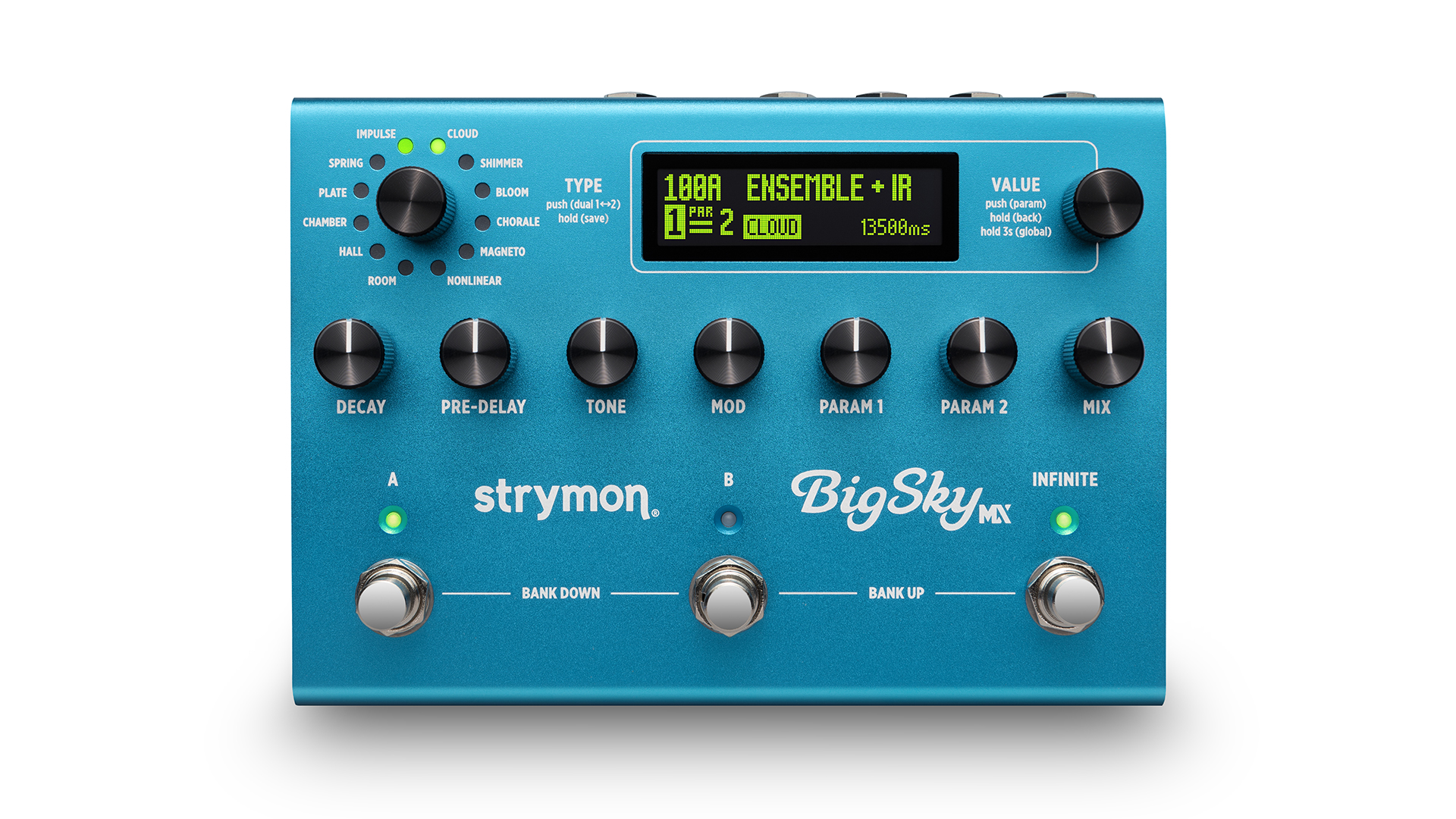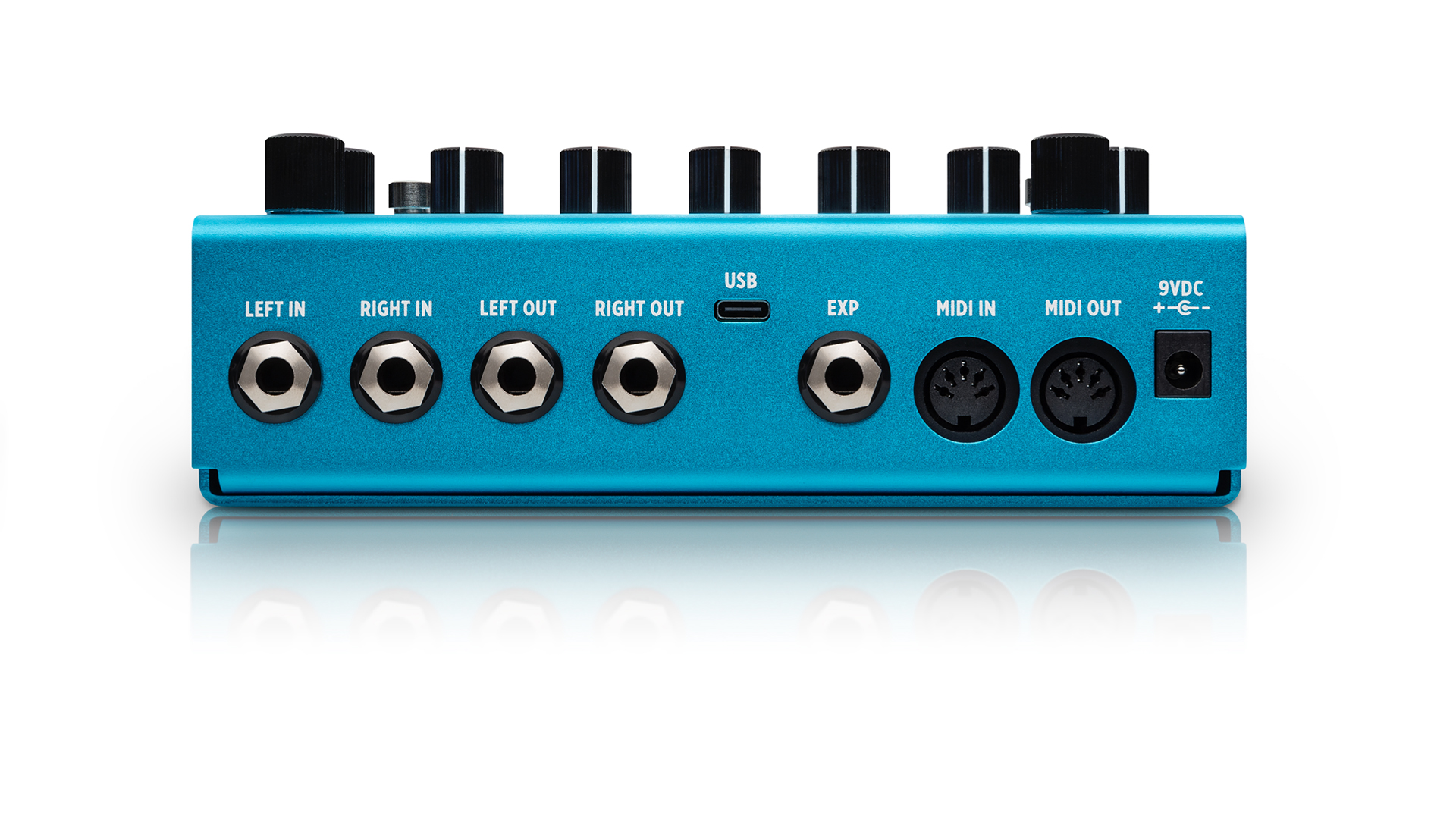
It’s strange to think that it’s been over a decade since Strymon debuted its game-changing BigSky pedal. In that time it’s not just established itself, but essentially become the industry shorthand for ‘high-end reverb pedal.’
Now, the arrival of its true successor, the BigSky MX, inevitably comes loaded with the expectation of a similarly revolutionary approach to ‘verb.
Patently aware of this, the firm has gone all-out on its new flagship unit, promising it “expands on the original design in every facet.”
There are still 12 ‘engines’ available, but now you can run two at once, thanks to a sizeable new processor in the form of a tri-core 800 MHz ARM chip (a significant upgrade to the original’s 366 MHz processor). These can then be combined, panned and mixed.

IR also plays a big role, with a generous 10 seconds of stereo impulse response playback per instance. Then there’s the ability to add your own IRs and a host of long captures of (as yet unspecified) classic studio equipment.
In addition, Strymon also says it has not simply ported in old favorites, but has also added brand new algorithms that have been developed specifically for the BigSky MX, each of which has been tuned to remove unwanted noise or artifacts.
There’s been some user improvements, too. What was once an LED screen is now a super sharp OLED display, and the tone tweaking controls have been rejigged to all sit on the same line.
“We’ve been working on this thing for the better part of four years”, said Gregg Stock, Strymon’s CEO and co-founder.
“It’s been a labor of love, and we knew that the legions of original BigSky fans were counting on us to get it right the first time. In the end it exceeded all of our expectations, and we’re really happy with how it turned out. The 12 engines in BigSky MX produce the absolute best ambiences we’ve ever made, and the ability to run two engines at once and the impulse stuff is a major step forward.”

“Playing around with BigSky MX during development has been a blast,” says Pete Celi, Strymon’s co-founder.
“The new algorithms are bigger, wider and cleaner than anything we’ve been able to achieve in the past, and impulse response playback is a welcome addition. We’ve included our very own long captures of some classic studio devices and some oddball vintage units collected by one of our engineers too, so there is an entire world of creative reverb in there to explore.”
Expect the BigSky MX to retail for around $679. Head to Strymon for more information.







